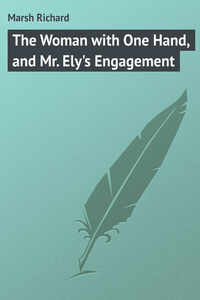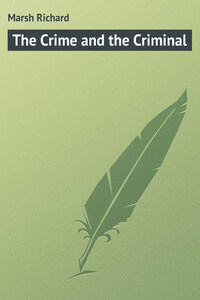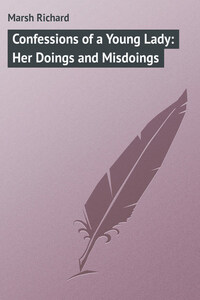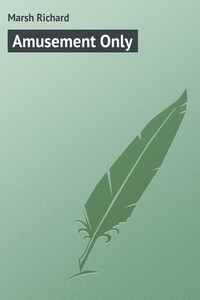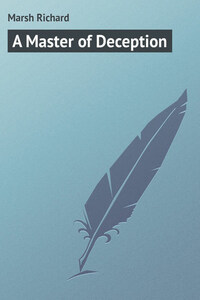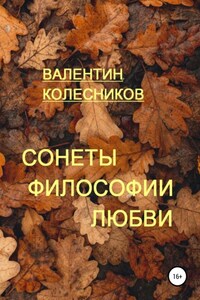It caught my eye at once. When a man is dining off his last half-crown he is apt to have his eyes wide open. Having just disposed of a steak which, under the circumstances, did not seem to be so large as it might have been, I picked up a paper which, as he had laid it down, the diner in front appeared to have done with. As it was folded, the agony column stared me in the face. And among the "agonies" was this: -
"If James Southam, at one time of Dulborough, will apply to the undersigned, he will hear of something to his advantage. – Messrs. Cleaver and Caxton, Solicitors, Thirteen, Bacup Street, London, S.E."
Now, I am James Southam, at one time of Dulborough, but, although I do answer to that description, a very clear something told me that if I did hear of anything to my advantage by applying to anybody, then the age of miracles was not yet done with. Still, as, when a man has spent on a doubtful meal one-and-sevenpence out of his last half-crown, something to his advantage is exactly what he wants to hear of, I clipped that advertisement out of the paper under the waiter's nose, and put it in my waistcoat pocket.
On referring to a directory in a convenient post-office, I found that Bacup Street was in the neighbourhood of the Old Kent Road. That did not seem to be a promising address, and, so far as appearances went, it fulfilled its promise. It struck me that Bacup Street, speaking generally, looked more than a trifle out at elbows, and Number Thirteen seemed to be the shabbiest house which it contained. An untidy youth received me. After keeping me waiting for a quarter of an hour in what might have served as an apology for a cupboard, he ushered me into a room beyond. In this inner room there were two men. One was seated at a table, the other was standing with his hat at the back of his head in front of the empty fireplace. They looked at me, then they looked at each other; and, unless I am mistaken, they exchanged a glance of surprise. The man at the table addressed me, without evincing any desire to rise.
"Well, sir, and what can we do for you?"
"That," I said, "is what I want to know."
The man smiled, as if he was not quite sure that there was anything to smile at. I took the newspaper cutting out of my waistcoat pocket.
"I have just seen this advertisement. I am James Southam, at one time of Dulborough, and if you are Messrs. Cleaver and Caxton, I have come to you to hear of something to my advantage."
For some moments my words remained unanswered. They both stared at me as if they were endeavouring by mere force of visual inspection to find out what sort of person I really was. Then the man at the table spoke again.
"Of course you have evidence as to the truth of what you say?"
"I have my card in my pocket; here are letters which have been addressed to me. If you will tell me what I am going to hear of to my advantage I will place you in the way of obtaining a sufficiency of any sort of evidence you may require."
I placed a card on the table, and some old envelopes, having first of all taken out the letters. The two men forgathered. They examined my "documents." They spoke to each other in whispers. Holding out one of the envelopes, the man who had already spoken pointed with a stubby and unclean first finger to the address which was on the front of it.
"Is this your present address?"
"No; at present I have no address."
"What do you mean?"
"I have been presented with the key of the street."
"Do you mean that you are impecunious?"
"I do."
The individual with the hat on who had not yet spoken to me, spoke to me now, with a decidedly unpleasant grin. "Stone-broke?" he said.
I did not like to turn myself inside-out to strangers, especially to such strangers: but I had recently had to do a good many things which I had not liked. Above all, I had begun to realise the truth of the adage which tells us that beggars must not be choosers.
"I am as nearly stone-broke as a man can be who is in possession of a fair variety of pawn-tickets, the clothes he stands up in, and elevenpence in cash."
There was some further whispering between the pair, then the individual with the hat on addressed me again.
"If you will step outside, in a few minutes we will speak to you again."
I stepped outside. They kept me outside longer than I altogether relished.
I was on the point of, at all hazards, asserting my dignity, when the man with the hat on, opening the door of the inner office, invited me to enter. It was he, when I entered, who took up the conversation.
"We are not, you must understand, at liberty to furnish you with particulars of the matter referred to in our advertisement without first of all communicating with our client."
"Who is your client?"
"That, without having received permission, we cannot tell you either. Can you not guess?"
The fellow stared at me in a manner which I instinctively resented. His glance conveyed a meaning which seemed to be the reverse of flattering.
"I certainly cannot guess, nor have I the least intention of trying. I have the pleasure of wishing you good-day."
